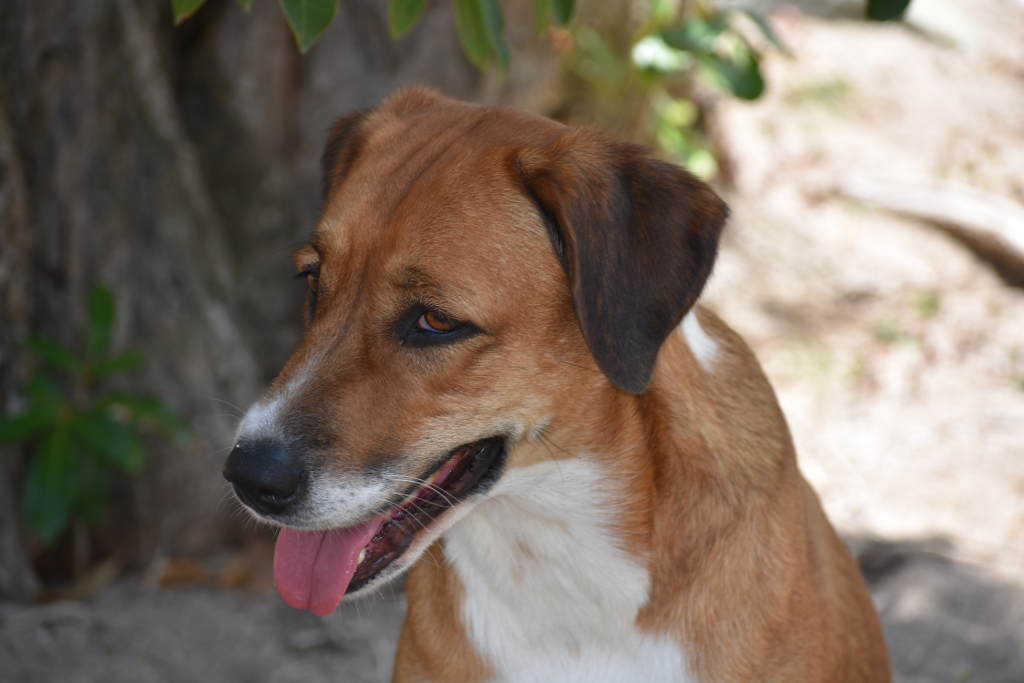Meet ten-week-old Lola - a puppy of unknown pedigree, who was almost killed by four sadistic teenage boys and rescued at the last moment. Lola was lucky, because she found a foster home and is now safe, loved and well cared for. Her story is a good starting point into the amazingly complex topic of 'island dogs'.
 Island dog Lola a few days after being rescued
Island dog Lola a few days after being rescued
Visitors to St. Maarten/St. Martin often voice concern over the many stray dogs they see, assuming they are homeless. But it's not that easy...
First: Dogs here have more freedom to roam about than in most parts of North America. Part of this relaxed attitude is the island's European background, where dogs traditionally are given more independence 'to do their thing'. Dogs which are accustomed to being off the leash are getting quite mature regarding the freedom granted; they learn to go about their business and return home reliably. They don't get in too many fights, don't bother people, and watch out for traffic.
 Island dog Lola at age 4
Island dog Lola at age 4
Here on the island is also the uncared-for dog: this dog might believe that it has a home, and some person actually asserts to own this dog, but this owner is utterly indifferent to the well-being of the animal, doesn't feed it enough, no medial care, not much attention given to its needs. And most certainly never, ever allowed into the house. Frequently, these dogs are on a chain. They live the saddest existence.
Finally, we have the true street dogs: they grow up wild, they have no neural imprint to accept or search for human contact and live in packs, spending much of the days in the bushes and roaming about mostly at night. Food doesn't seem as much of a problem to them as fresh water and this is the reason they like to hang around villas with pool, so that they can sneak in at night and drink. These dogs are very shy; some run away at the sight of a human, some allow a distance of 10 meters, others a bit closer - but never close enough to be touched. They are not aggressive; yet if captured, they usually can not be turned into a pet. They are uncomfortable to be confined to a single property, even if somewhat 'tamed', they will run away at the earliest possibility and join their pack again. It is fascinating to see that even their litters will not accept humans: puppies with only 4 weeks of age use their tiny teeth and all power they have to fight from being 'rescued'.
St. Maarten/St. Martin has an active scene of volunteers assisting animals. The Animal Welfare Foundation is doing fantastic work, by trapping wild dogs, having them spayed or neutered - the procedures performed for free by the islands veterinarians. Even medical emergencies are handled without charge on injured feral dogs! Understanding the nature of these independent animals, they are released back into freedom to live their lives as they prefer - as long as they don't multiply. Food is provided for these animals on a daily basis.
The concern of the Animal Foundation is not to remove dogs from the street and to domesticate them, but to ascertain that their uncontrolled breeding stops. They have succeeded in limiting the growth of the population, but they need everyone's support to continue their good work.
http://sxmanimalwelfare.org
https://www.facebook.com/StMaarten-Animal-Welfare-Foundation-270373812975726/






